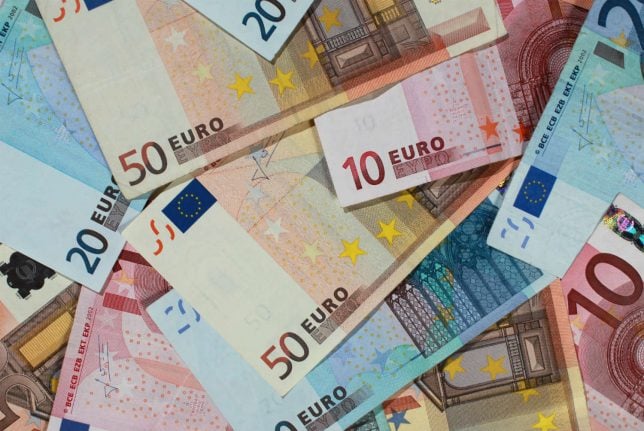“The economy could contract again slightly” this summer, Germany's central bank said in its monthly report, following a 0.1-percent decline in gross domestic product (GDP) in the second quarter.
“According to data currently available, industrial production is expected to shrink markedly in the current quarter as well.”
READ ALSO: German economy is 'down on its knees': Is a recession looming?
Having seen a decline in trade against the backdrop of the US-China trade war, two of its main customers, Europe's biggest economy will enter what it technically defines as a recession should its GDP shrink further.
Alarmist signals are reviving the political debate between those who support the German government's dogma of balanced budgets and those seeking more flexibility in order to revive the economy.
Germany can afford it on paper after five consecutive years of budget surpluses and interest rates for long-term loans that are extremely attractive to the federal government.
As US-China tensions intensify, economists have urged Germany to fork out cash to avoid a recession, but Chancellor Angela Merkel's government has previously said things were not yet bad enough to warrant loosening the purse strings.

A BMW plant in Leipzig. Germany's auto industry comprises a sizeable chunk of its export market. Photo: DPA
Balanced budget
Citing anonymous sources, Der Spiegel news magazine said Friday that the government “had no intention of continuing to set aside money in the event of a recession”.
That would mean abandoning the so-called “black zero” doctrine committing the German state to a balanced budget.
On Sunday, German Finance Minister Olaf Scholz hinted at a potential intervention, stating that Germany could “fully face up to” a new economic crisis.
“It is sometimes important, when things change completely, for example, for us to have enough strength to react,” he said during an open house day at government offices.
“If we have debt in Germany that is less than 60 percent of our GDP, that is the strength we need to stand up to a crisis,” he added.
Scholz pointed to the estimated €50 billion that the 2008-09 financial crisis had cost the German government.

After the financial crisis and until 2013, there were negative figures to represent the difference between Germany's income and expenditure. Graphic: DPA
“We have to be able to muster that and we can muster that — that's the good news.”
In particular, several Social Democrats, junior partners in Merkel's coalition government, want Germany to draw on its reserves to finance a plan to combat global warming or infrastructure works.
Flexibility instruments could enable Berlin to draw on its large budget surplus of 1.7 percent of its GDP as early as September.
Merkel's conservatives have so far resisted and abandoning the popular balanced budget stance seems unlikely with major regional elections looming in September and October.



 Please whitelist us to continue reading.
Please whitelist us to continue reading.
Member comments